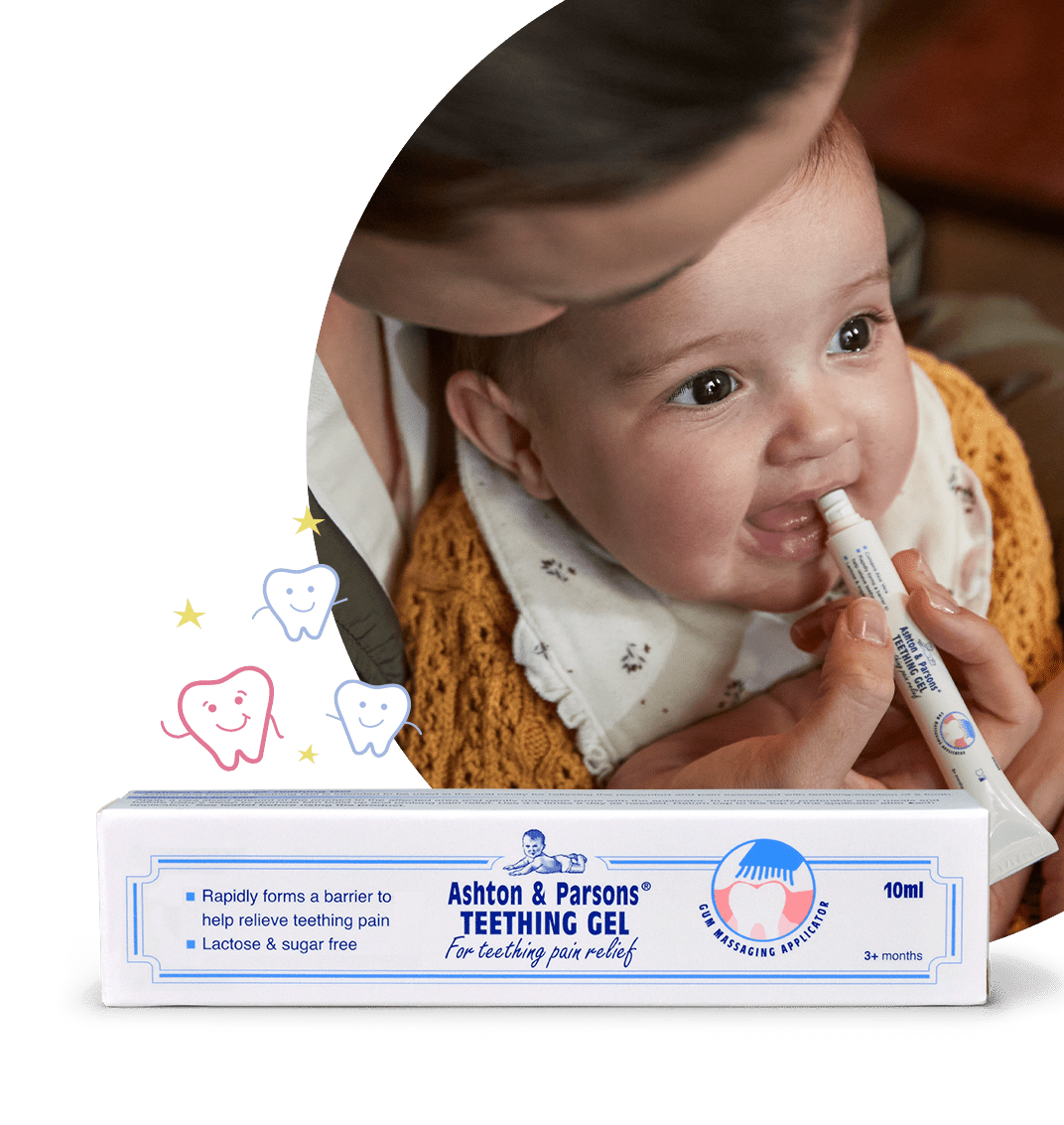Tracey Stone: Teething and Sleep
Tracey Stone is a Health Visitor, and able to provide expert guidance on all things teething. Currently a registered practising Health Visitor in the community working with children and their families, Tracey also supports families in the online community with issues related to health and wellbeing. She is a qualified Paediatric Nurse with over 20 years’ experience and a Nurse Prescriber. She has also helped establish a respite service for Children with Special Needs.

When your child’s first tooth will actually appear is quite unpredictable. However, what we do know for sure about teething, is it has no preference between day or night! Waking, upset or changes to sleep patterns are potential problems at this time. It may feel like their teething discomfort is worse at night, than daytime but this isn’t true. A tired human being (big or small) is generally a less tolerant one making it harder for everyone to manage in the small hours, especially when it feels like the rest of the world is sound asleep!
By the time your baby is 6 months of age, you may have established a good bedtime and sleep routine. Just as you have things the way you wish, the arrival of those little teeth may set things a little off balance. This can feel soul destroying as you may have put a lot of effort into your families routine and sleep patterns. Try to remember though that teething is a time limited process, and will stop and quickly as it started. Babies often return to their normal routine with not too much effort from anyone.
A good way to have your teething baby ready for sleep is preparing them well when they are still awake. During the day if your baby is actively teething, offering a cool teething ring to bite on is an option. Rub their gums with your clean finger, or a give them a clean cold wet flannel to suck can works wonders. These daytime remedies may help alleviate pain during the night, as this care takes heat and swelling out of their gums in advance. Offering sugar free paracetamol or Ibuprofen suspension 20 minutes before their meal time, may encourage your baby to eat well during the day. This could prevent any wakeful hungry tummy rumbles in the night. A light supper before bed may also induce a deeper sleep. As with any medication it’s important to follow the manufacturers guidelines.
Nappy rash has never been directly linked as a definite symptom of teething. Nonetheless it’s a worry so needs support. Babies and grown-ups alike would struggle to sleep with a sore bottom so good preparation for this possibility is worthwhile. Using waterproof barrier cream at night will keep this sensitive area of your baby protected from any reason to wake. If your baby is also drooling from their mouth, a suitable barrier cream around their lips, mouth and neck will help irritation and prevent sore chaffing at their top end too.
Checking your baby’s temperature and their bedroom temperature is also good preparation for a settled night. Teething may cause a mild temperature of less than 38*C, and an uncomfortable room temperature can both affect your babies sleep. The ideal room temperature should fall between 16-20*C Read more here.
It’s important to remember that if your baby does have a fever, it may not be due to teething, so seek support from your GP or HV if you are concerned.
These are all ideas to try, but your baby may be restless despite all your efforts. If they wake and if your baby has the ability, see if they can self-settle first to encourage them in this skill. A gentle back rub, maybe a soft lullaby or comforting words from you in their darkened room may help.
If your little one normally sleeps through, it would be a good idea not to reintroduce a night feed as a possible remedy. It may seem like a solution but you may be resolving one problem but causing another. It may help to know that sucking during feeds can actually make your babies gums feel worse, as it creates suction on their already tender gums, so may not help you resolve any discomfort either.
What we all need when we are feeling tender is love and snuggles. Crying is your baby’s only way to let us know they need your help, so can’t be ignored. If you need to cuddle your baby, then its Ok to make a few allowances. That extra loving cuddle may help you too until the phase passes, which it will do soon.
General advice only, Tracey does not endorse the brand.





